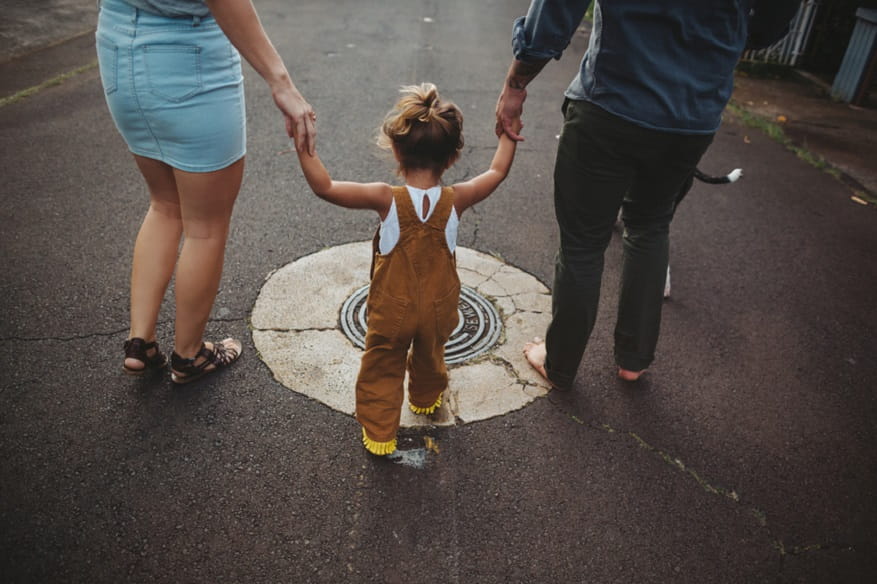Still a Family: When Talking to Kids About Divorce, Put Their Needs First

By Linda Hassan Anderson
Divorce can be a sad, stressful, and confusing life event for the entire family. From heightened emotions to big questions from the children, each family member is affected by the changes that occur when parents decide to end a marriage. There is no easy way to talk with your children about divorce, but there are some ways you can help ease their pain and help them adjust.
1. Both parents should talk to their children together.
Hearing the message from both parents together demonstrates an ongoing dedication to your children’s well-being that is separate from the conflict happening between the adults. Agree with your spouse in advance about a simple explanation for your divorce, and stick to it. Consider the timing and location of your conversation. It will likely be remembered by your children for a long time, so ensuring the conversation is unhurried and in a location that is familiar and private can give children a greater sense of your full commitment to them.
2. Consider each child’s personality and emotional needs.
Nobody knows your children better than you do. Be aware of each child’s needs and sensitivities, and adapt your language to accommodate their age, maturity, and emotional levels. Whatever words you choose to say, the message should be clear: Children are not to blame for a divorce.
3. Be prepared to answer questions.
Children will likely have questions about life after the divorce and how they will be impacted. You may be asked questions for which you have no answers. Honest responses such as “We haven’t made a decision about that yet,” or “I’m not sure” show children that divorce is a process and that flexibility is needed from everyone in the family.
4. Keep your own emotions out of the conversation and focus on the children.
Give your children enough information so that they can understand short-term life changes, such as schedules and living arrangements. Avoid sharing information about the divorce that will result in heightened emotions. Keep hurt feelings, anger, guilt, and blame out of the conversation with your children.
5. Give your children time to process, but check in with them often.
Do not have expectations about how your children will react. Children need time to process the news of your divorce, and their reactions may change over time. Let your children know that it is okay for their feelings to change; encourage them to talk about their feelings. Acknowledge their emotional journey, and watch for signs of stress like changes in behavior, temperament, appetite, or sleep.
Keep the following tips in mind as your family walks through the divorce process:
- Keep family routines as consistent as possible.
- Be respectful of your spouse around your children.
- Keep each parent involved in the children’s lives.
- Provide constant reassurance to your children that both parents will always love them and they are not to blame for the divorce.
- Take care of yourself during the process.
- Get help for yourself or your children when needed.
Change of any kind is difficult for children. Divorce is a painful change that requires parents to work together in helping children adjust. By carefully planning the initial conversation with your children and helping them process the information, you can minimize some of the challenges.





